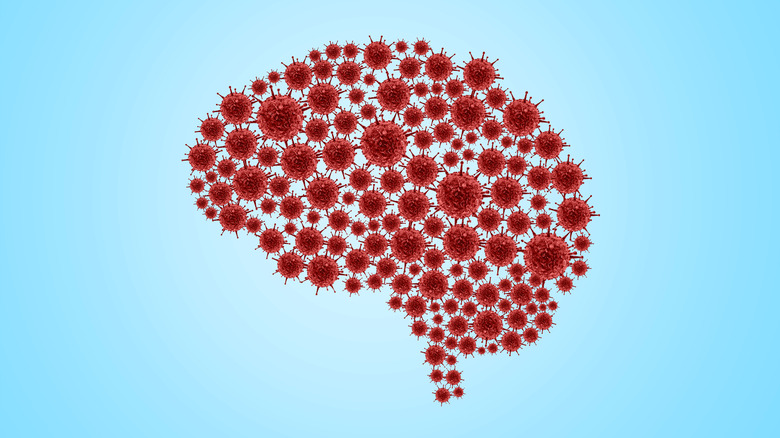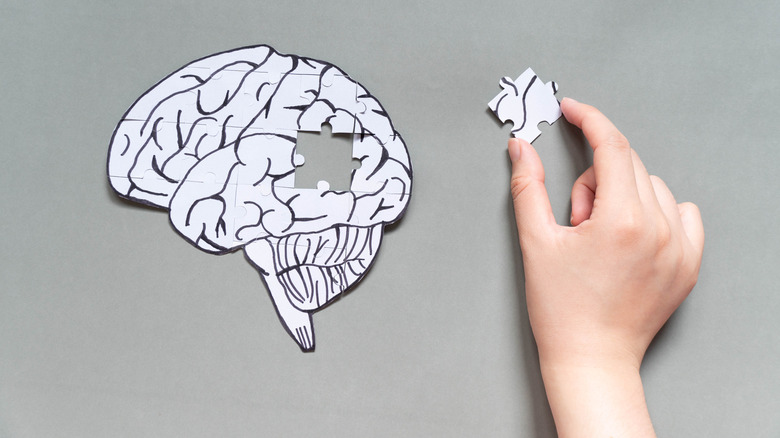How COVID Can Significantly Age The Human Brain
One in five people aged 18 to 64 could experience health conditions related to COVID well after their initial infection, according to the Mayo Clinic. Long COVID symptoms are those that either appear or persist four weeks after infection and can include muscle or joint pain, heart conditions, blood clots, or digestive issues. According to the Centers for Disease Control and Prevention, people could also experience neurological symptoms such as brain fog, sleep issues, and dizziness. A recent study in Nature Aging has now found that a severe COVID infection can significantly affect the brain on a molecular level.
The study conducted RNA-sequencing analysis on the brain tissue of 54 people who had died. The people's ages ranged from 22 to 85 years old, and 21 of them had severe COVID. The researchers compared the brain tissue of those with severe COVID to others of similar age who were uninfected and had no history of neurological or psychological disease. People with severe COVID — even those who were younger — had signs of significant cognitive decline similar to an aging brain.
Inflammation in severe COVID cases contributes to accelerated aging
In a press release, co-first author and Harvard Medical School and BIDMC postdoctoral research fellow Dr. Jonathan Lee said that the brain tissue of people who died of severe COVID was similar to 71-year-old people who were uninfected. "While we did not find evidence that the SARS-CoV-2 virus was present in the brain tissue at the time of death, we discovered inflammatory patterns associated with COVID-19," Lee said. "This suggests that this inflammation may contribute to the aging-like effects observed in the brains of patients with COVID-19 and long COVID." Neuroinflammation has been linked to cognitive decline, according to a 2022 study in Alzheimer's & Dementia.
The authors in this current study also suggested a neurological follow-up for patients who've had COVID. They also suggest that people work with their doctors to reduce their risk of age-related cognitive decline. This includes limiting alcohol use, quitting smoking, getting adequate sleep, staying physically active, and reducing stress, according to the National Institute on Aging.


